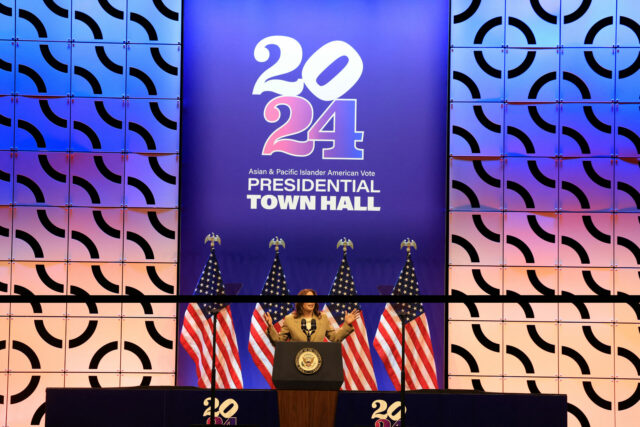Vice President Kamala Harris, the Democratic presidential candidate, will meet Israeli Prime Minister Benjamin Netanyahu at the White House this week. This high-stakes diplomatic encounter comes as President Biden recovers from COVID, thrusting Harris into the spotlight on foreign policy issues.
Harris will miss Netanyahu’s address
Harris will miss Netanyahu’s Congress address due to a prior commitment in Indianapolis, with Senate Foreign Relations Chair Ben Cardin presiding instead. The Gaza humanitarian crisis and ceasefire efforts top the meeting agenda, reflecting the urgency of the situation where over 39,000 Palestinian deaths have been reported.
The meeting highlights Harris’s growing role in international diplomacy as she campaigns for the presidency. Harris faces the challenge of balancing U.S. support for Israel with addressing the dire humanitarian situation in Gaza. Biden recently proposed a three-phase Gaza ceasefire plan, underlining the administration’s efforts to resolve the conflict.
Netanyahu’s visit clouded by ICC probe
Netanyahu’s visit occurs against a backdrop of global criticism over U.S. support for Israel and allegations of war crimes against the Israeli leader. The International Criminal Court prosecutor’s office has requested an arrest warrant for Netanyahu over alleged war crimes, which Israel denies.
Harris’s aide emphasized her intention to express concerns about Gaza’s humanitarian crisis, where Israel’s military actions have resulted in widespread destruction, displacement, and a looming hunger crisis. The conflict erupted following Hamas’s October 7 attack on Israel, which killed 1,200 and took about 250 hostages.
Netanyahu has sought meeting with Trump
Interestingly, Netanyahu reportedly sought a meeting with Republican presidential candidate Donald Trump, though Trump has not yet agreed. This adds a layer of political intrigue to the diplomatic discussions.
As ceasefire efforts continue, Harris’s meeting with Netanyahu takes on added significance. It showcases her diplomatic skills and stance on a critical international issue while campaigning for the presidency. This high-profile encounter underscores the complex interplay between U.S. domestic politics and international diplomacy, particularly concerning the ongoing Israel-Gaza conflict.
The outcome of this meeting could impact both the humanitarian situation in Gaza and the trajectory of the U.S. presidential campaign, making it a pivotal moment in current global affairs.
With inputs from Reuters
Traveller, bibliophile and wordsmith with a yen for international relations. A journalist and budding author of short fiction, life is a daily struggle to uncover the latest breaking story while attempting to be Hemingway in the self-same time. Focussed especially on Europe and West Asia, discussing Brexit, the Iran crisis and all matters related is a passion that endures to this day. Believes firmly that life without the written word is a life best not lived. That’s me, Ashwin Ahmad.





